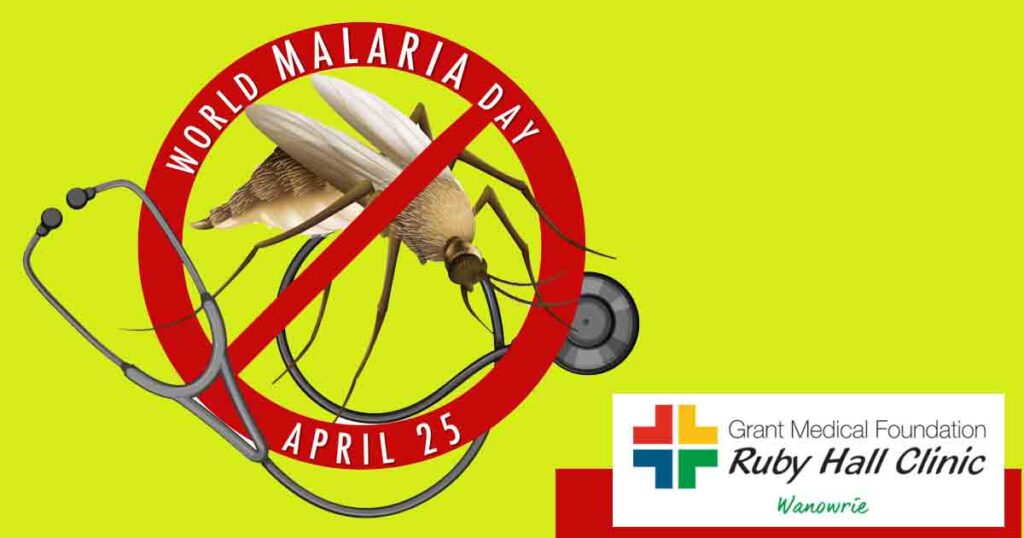Bitten by the Malaria Bug? Here’s what you can do

World Malaria Day, observed annually on the 25th of April, serves as a reminder of the impact of malaria and its destructive consequences on the global population. Marked under the theme “Time to deliver zero malaria: invest, innovate, implement” by the WHO, Indian statistics paint a positive picture. The country has made tremendous progress in its malaria elimination journey in the recent years – observing a reduction of close to 66% in its official malaria burden between 2018 and 2022.
So what are the symptoms of malaria? Explains Dr. Suhas Rajput, Consultant, Ruby Hall Clinic Wanowrie, “Most people know that malaria is spread by mosquitoes. After a single infected mosquito bite, the patient experiences a high temperature, headaches, vomiting, shivering, joint pain or diarrhoea, typically in one to four weeks. In some cases, however, it lies dormant for a year or more before symptoms arise along with the need for timely medical attention.”
After the infection has become active, the parasite from the mosquito attaches itself to the host’s red blood cells and multiplies. This causes blood cells to lose their elasticity, becoming floppy, and they start to clog the blood vessels around organs. In the most severe cases, this leads to organ failure and death, as organs cease to function properly without a healthy blood flow. In less severe cases, the parasite weakens the red blood cells, meaning that they have shorter life spans. Malaria may
cause other serious problems such as damage to the heart, kidneys, and lungs.
Sometimes symptoms may even appear in cycles. The time between episodes of fever and other symptoms varies with the specific parasite infection one may have. Immediate medical attention is mandatory, failing which serious medical complications may arise thereby posing a grave risk to the patient’s life. Treatment of malaria is largely dependent on the type of malaria contracted.
Medications and anti-malarial drugs are used to treat uncomplicated and severe malaria. If administered promptly after diagnosis, the chances of survival are 100%.
“Timely identification can be the determining element for your wellbeing, specially with infectious diseases such as malaria. Our adept medical professionals and state-of-the-art technologies offer the most comprehensive methods to manage your health in the midst of continuously changing lifestyles and climate changes. We offer preventive health check-up packages designed for every age bracket. Schedule an appointment with us to keep track of your health,” adds Dr. Madan Dang,
Medical Director, Ruby Hall Clinic Wanowrie.
Some tips to keep in mind:
• Maintain a high level of hygiene in your home. Dirty and unhygienic environment serves as a breeding ground for mosquitoes.
• Wearing long-sleeved shirts and pants can help protect against mosquito bites.
• During monsoon, mosquitoes and flies multiply at an alarming rate. Always apply a strong insect repellant to keep them at bay. Clear stagnant water bodies, which are a breeding ground for mosquitoes, can help prevent the spread of malaria.
• If you have fever, do not venture outside. You may not only end up aggravating your own medical condition but also be putting others around you at risk of contracting infectious diseases.
• If you experience symptoms of malaria, such as fever, chills, and headache, seek medical help immediately. Early diagnosis and treatment can prevent severe malaria and its complications.
If you or your loved one is suffering from malaria or showing any symptoms, visit Ruby Hall Clinic Wanowrie.










